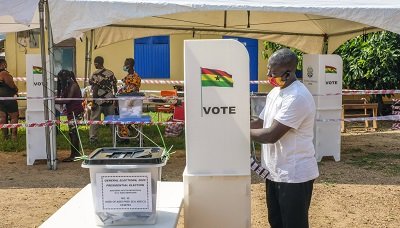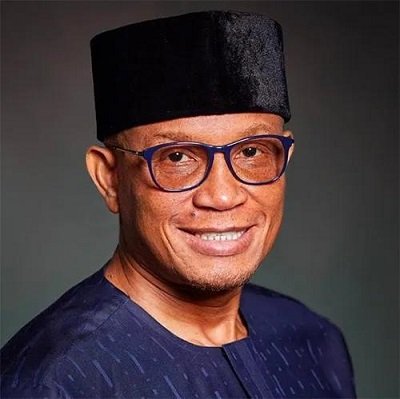News
Asene-Akros-Manso NPP supporters call for transparency in electoral process

A group of concerned members of the New Patriotic Party (NPP) in the Asene-Akroso-Manso Constituency in the Eastern Region are not happy with what is going on in the constituency regarding picking of nomination forms by interested members to contest positions in the party.
The group alleged that some aspirants believed to be associated with former Member of Parliament, Hon. Owusu Boateng who later contested as an Independent candidate in the 2020 election, had been prevented from contesting after submitting their forms.
This worrying situation compelled the concerned group to submit a petition duly signed by 12 of its members to the chairman of the Election Committee in the Asene-Akroso-Manso Constituency to urgently rectify the anomalies of the electoral processes for sanity to prevail.
Part of the petition read:, “We humbly write to appeal to your good office to rectify some anomalies in the electoral process at Asene and Manso before the commencement of the election in the above mentioned towns.
“That in Akim-Manso, forms duly bought for the old executives by Dr. Mahamudu Bawumia were not given to them, instead they were given to new aspirants.
“That as NPP faithful we cannot sit down unconcerned to lose as many as 6,000 people that the so-called independent candidate, Hon. Yaw Owusu Boateng had in the 2020 elections.
“We believe this is purely discrimination and injustice since nobody can determine who voted for whom in the general election.
“And we believe this discrimination and injustice only happened in Asene-Akroso-Manso constituency since all other constituencies in Ghana absolved all followers of independent candidates”.
The petitioners are; Messrs Amos Kwadwo Acheampong, Seth Okyere Boakye, Stephen Effah, Amoah Gyimah Theophilus Appiah, Prince Owusu Boamah, Peter Baah, Sekyere Boateng, Samuel Afeke, Bismark Kwakye Akyerefi, Kofi Danso, Prince Amoah and Stephen Danso.
By Spectator Reporter
News
OSP increases charges against Mustapha Abdul-Hamid and others to 54

The Office of the Special Prosecutor (OSP) has amended the charges in the ongoing case against former National Petroleum Authority (NPA) Chief Executive, Mustapha Abdul-Hamid, and nine others.
The number of counts has risen from 25 to 54 after investigators uncovered new evidence.
The accused are facing trial for alleged large-scale extortion, abuse of public office, and money laundering involving over GH¢291 million and US$332,000.
According to the OSP, the accused persons allegedly extorted huge sums of money from bulk oil transporters and oil marketing companies under the pretext of carrying out official duties.
The proceeds were reportedly laundered through the purchase of properties and investments in business entities to conceal their source.
The accused persons include Mustapha Abdul-Hamid, Jacob Kwamina Amuah, Wendy Newman, Albert Ankrah, Isaac Mensah, Bright Bediako-Mensah, Kwaku Aboagye Acquaah, Propnest Limited, Kel Logistics Limited, and Kings Energy Limited.
The OSP has also seized and frozen several assets, including tanker trucks, fuel stations, houses, apartments, and parcels of land valued at more than GH¢100 million pending the outcome of the trial.
The case, titled The Republic v. Mustapha Abdul-Hamid & 9 Others (Cr/0603/2025), is currently being heard at the Accra High Court.

By: Jacob Aggrey
News
Police arrest suspect for impersonating police officer

The National Operations Directorate (NOD) Surveillance Unit, of the Ghana Police Service has arrested a 32-year-old man, Akoto Nelson, for posing as a police officer during a public event at the Black Star Square in Accra.


The suspect was arrested on Sunday, 19th October 2025, by a team of officers deployed to provide security at a musical concert. The team observed the suspect dressed in a police uniform with the rank of Assistant Superintendent of Police (ASP) behaving suspiciously. Upon interrogation, he admitted that he was not a police officer.
Investigations revealed that the suspect impersonated a police officer to gain free entry to the event, claiming he did not have money to pay the entry fee. He further disclosed that the uniform belonged to a deceased Chief Inspector, identified as Gyasi, from whom he obtained the police accoutrements in 2022.
A subsequent search conducted at his residence in Taifa-Ashaiman uncovered several items that were retained as exhibits. These include one toy P99 pistol, one pepper spray, two ZTE mini handsets, one pepper spray pouch, one ZTE charger, one Xinfa cutter knife, some complimentary cards, one voter ID in the name of Akoto Nelson Elikem, and one birth certificate in the name of Nelson Akoto.
Preliminary investigations further established that the suspect works as a security guard and a messenger at a private company. He remains in police custody and will be put before the court.






